Environmental Studies and Human Nutrition: A Vital Nexus of Public Health Potential
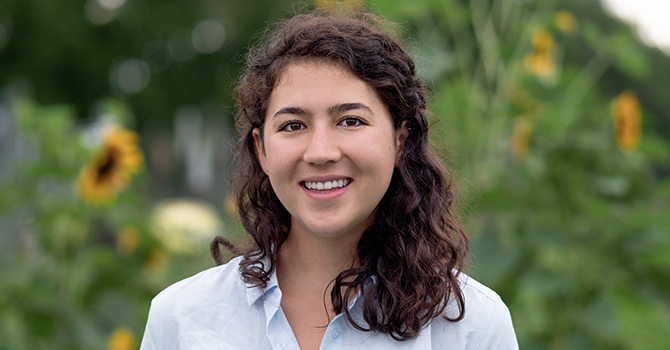
Maddy Schmitter, BS ’19
I consider myself very fortunate to have grown up in Ann Arbor. Living in a community that encouraged healthy lifestyles sparked my interest in going into a health-related field and in supporting health equity across all communities.
The unfortunate truth is that health consequences resulting from environmental degradation are felt most acutely by vulnerable communities—communities that already experience a range of health inequities.
As an undergraduate at the University of Michigan, I was initially on the pre-med track. During my first semester, I took a women’s health class that focused on social determinants of health and approaches to health inequities. As I developed an understanding of public health’s approach to these issues, I was inspired to consider public health as a path to addressing health issues at their root rather than through clinical work with individuals.
The unfortunate truth is that health consequences resulting from environmental degradation are felt most acutely by vulnerable communities.
I was also excited by the prospect of being a part of the first undergraduate cohort at Michigan Public Health and being surrounded by people with a shared goal of promoting population health. I paired my public health studies with environmental studies because the two fields are inextricably linked. Health equity depends, in part, on ensuring environmental justice—the equitable treatment and equal involvement of all people in every aspect of decision making about environmental concerns.
More about Maddy
In addition to earning a BS in Public Health Sciences, Schmitter completed a minor
through the Program in the Environment (PitE), a university-wide collaborative overseen
by the College of Literature, Science, and the Arts (LSA) and the School for Environment
and Sustainability (SEAS).
Schmitter served on the student leadership team for the UM Sustainable Food Program
(UMSFP) and has been involved with the Food Recovery Network and other sustainability
and food-related organizations.
In her free time, Schmitter loves to cook, run, and spend time outdoors.
I am learning all I can about environmental studies and public health because the intersection of these two fields is where we will find great solutions for our food systems. Human food consumption and environmental sustainability are a vital nexus for public health learning and practice.
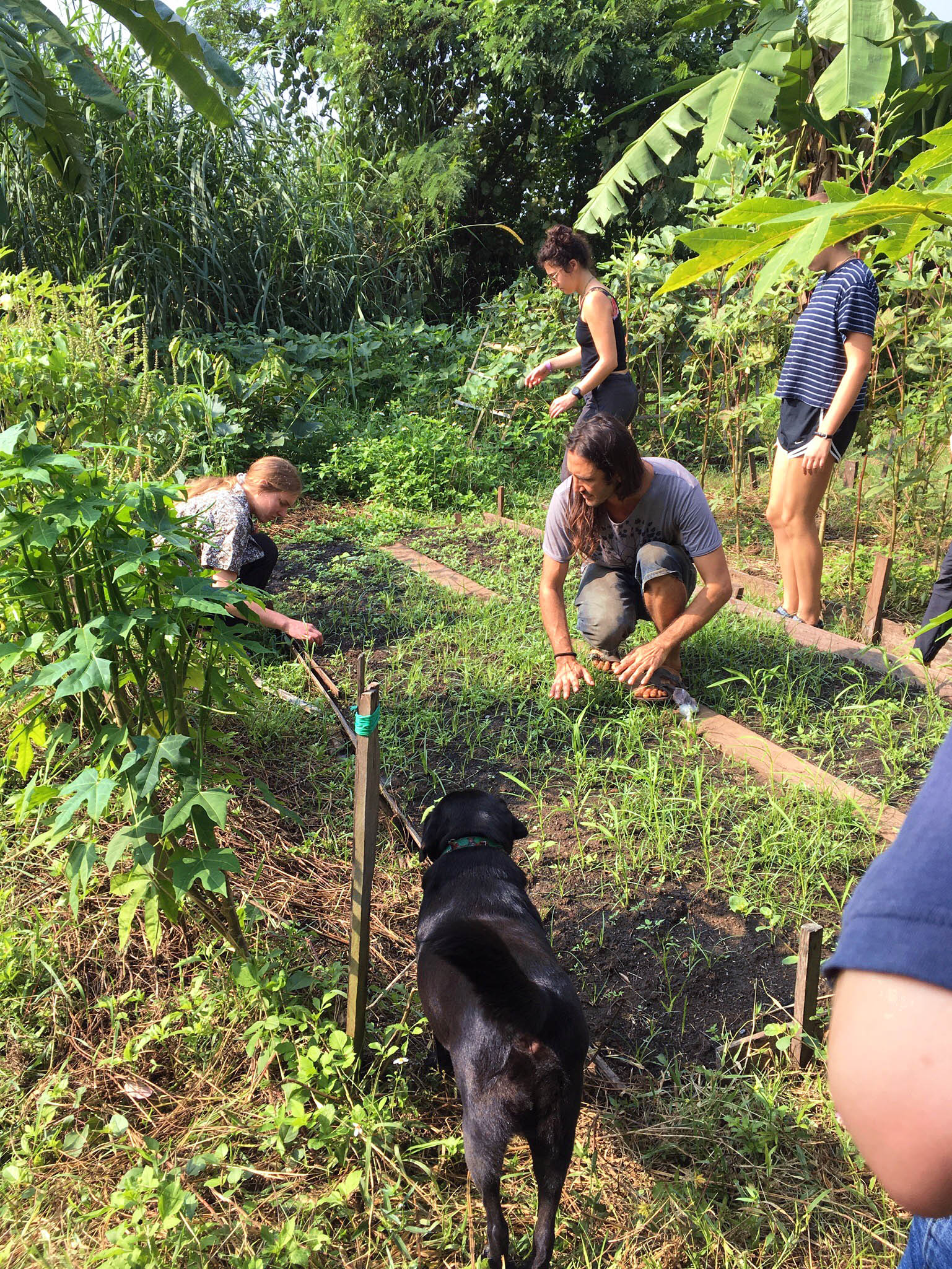
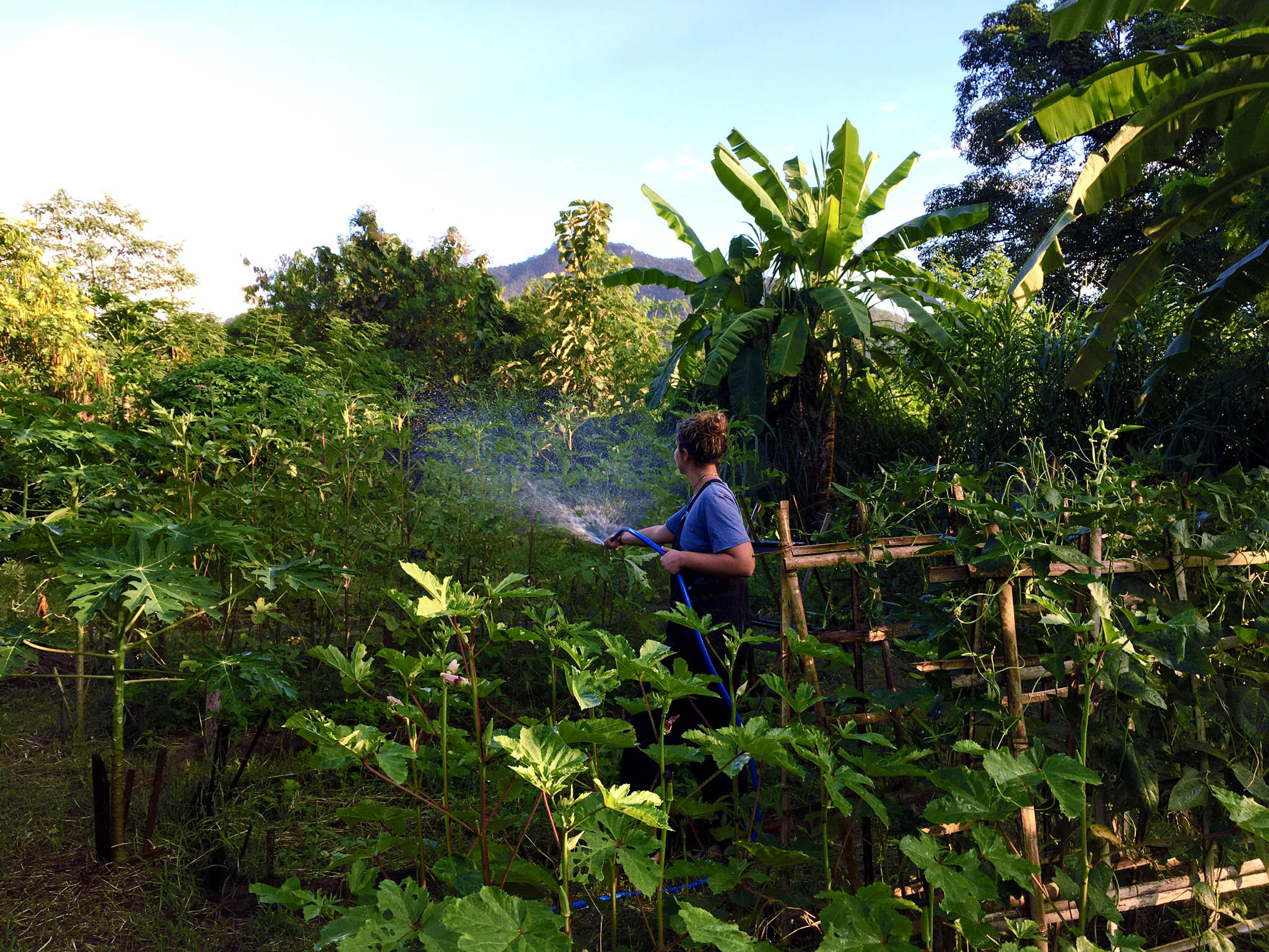
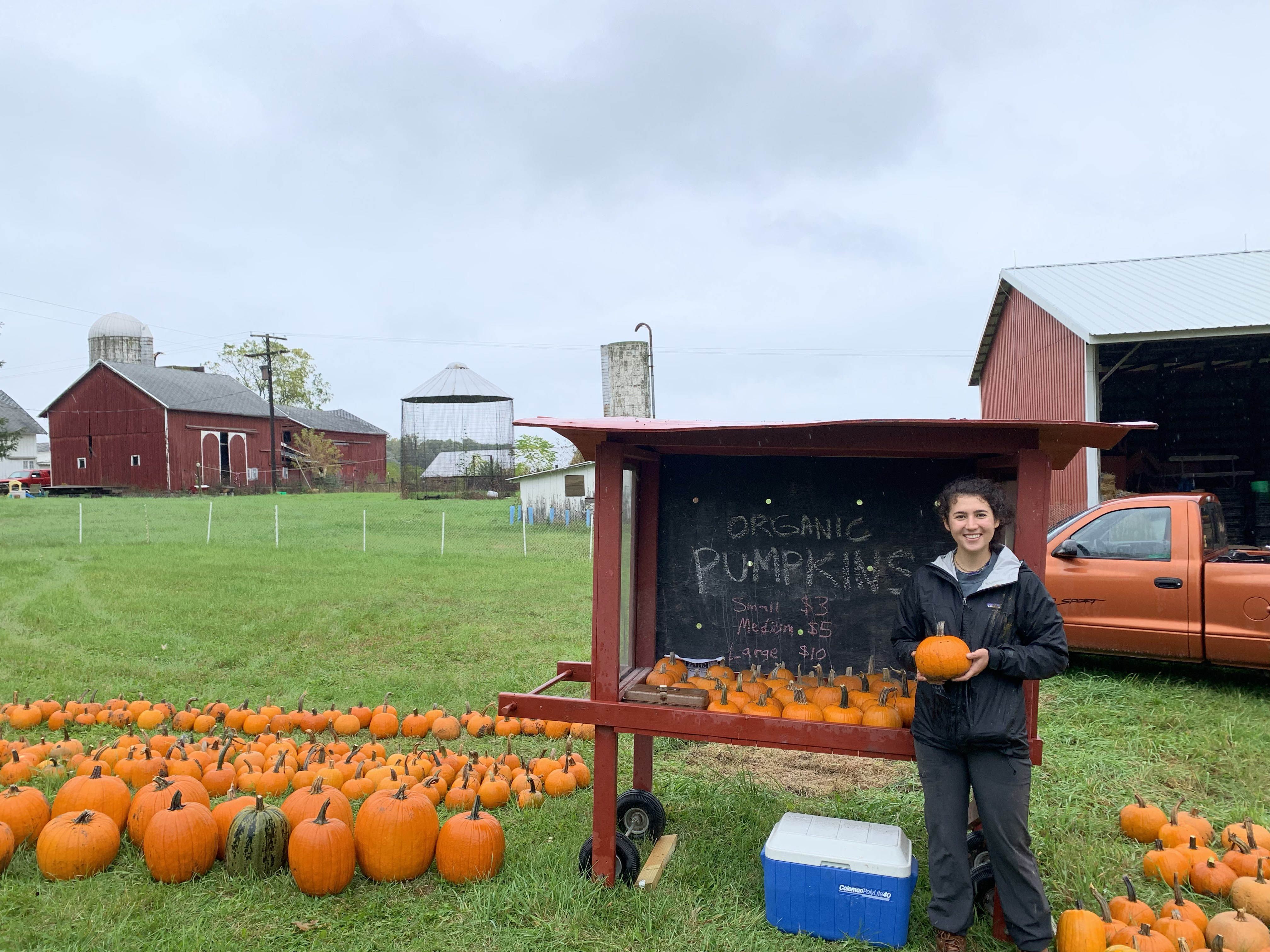
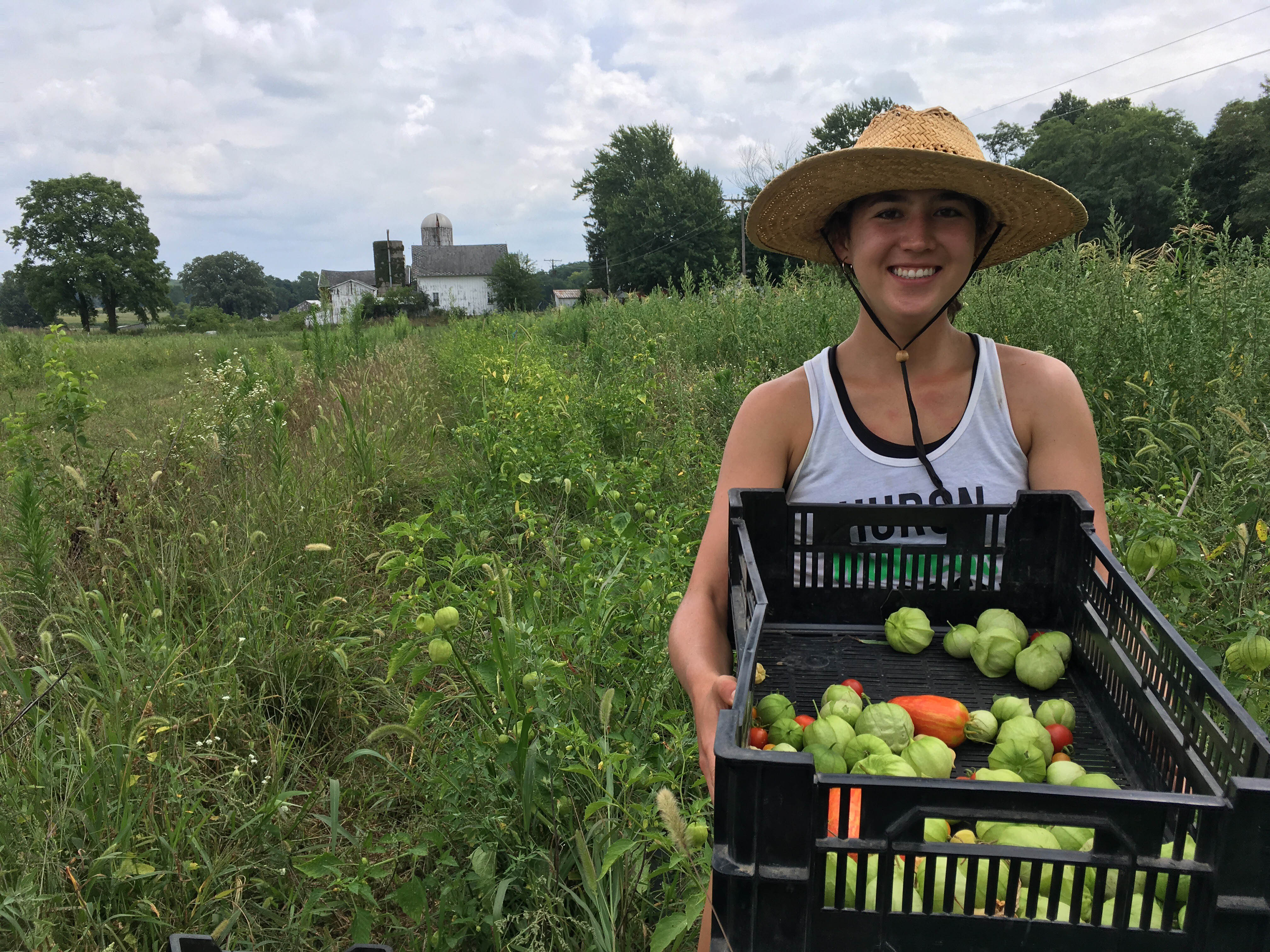
Many food systems use huge amounts of water, land, and harmful chemicals while simultaneously producing huge amounts of waste. Many food systems also encourage diets that contribute to many health issues and allows many individuals to be food insecure. Food systems are a key target in addressing challenges to both the health of populations and the health of the planet. Put in a positive way, scrutinizing and improving food systems is an opportunity to implement wide-reaching changes that support better health outcomes for all, especially vulnerable populations.
Even the modest changes we can make to policy and practice in the US could have huge impacts for human and environmental health.
An exciting thing happening in sustainable foods right now are the proposed innovations that would reduce food waste and food insecurity simultaneously. In France, for example, grocery stores are prohibited from throwing away any edible food—and this is changing supply chains and greatly increasing donations to food banks. The US could do a lot better in the areas of food waste and food insecurity, so even the modest changes we can make to policy and practice here could have huge impacts for human and environmental health.
I’m currently working on organic farms in Southeast Asia to learn more about their food systems and am volunteering with several public health organizations here. My experiences will be applied to whatever communities I am privileged to serve as a public health professional, where I will encourage environmental and human health practices that lead to better health for all populations.
- Interested in public health? Learn more here.
- Learn more about pursuing an online education.
- Read more stories about public health undergraduate students.
- Support research and engaged learning at the School of Public Health.
